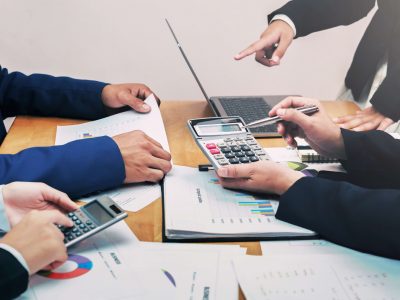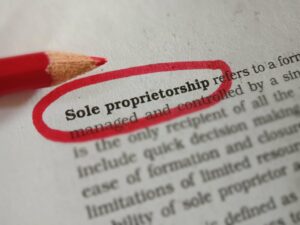
To calculate your Class 4 NICs, you need to know your total profits for the tax year. You can then use the HMRC’s online calculator to work out how much you need to pay. To calculate your Class 2 NICs, you can use the HMRC’s online calculator. If you pay them annually, you can do so as part of your self-assessment tax return.
List of Tax Codes in South Africa – Guide for Employers
When you work for yourself, you’re often juggling multiple hats which is why bookkeeping is often a task that many a sole trader would rather forget about. In exchange for the highest degree of autonomy in decision-making and potential profits, sole traders also take immense personal financial risks. They must manage all aspects of their business while knowing their assets are vulnerable if the venture fails. Expenses can cover a broad range of things such as rent of an office or co-working space, supplies, equipment and subscription purchases.
What is the difference between sole traders and self-employed?

Bookkeeping isn’t complicated and with a little bit of basic admin, you can easily stay on top of yours. Join more than 500,000 UK readers and get the best business admin strategies and tactics, as well as actionable advice to help your company thrive, in your inbox every month. So, starting now will give you plenty of time to get used to the process before it becomes mandatory. This speeds up the whole process of getting the work—and getting paid for it. It makes sense to complete this process much sooner – don’t put it off until the night before the deadline.
Personal Income Tax
Learn more about your business bookkeeping responsibilities as a self-employed person, and what information your accountant needs from you. If you’re VAT registered, unless you register for Flat Rate VAT, your bookkeeping will get a bit more labour intensive as you’ll need to track and record VAT paid on relevant expenses. Creating and sending invoices is also an important aspect of bookkeeping. Invoices should include the date, a unique invoice number, a description of the goods or services provided, and the total amount due.
By categorizing your expenses, you can easily track and analyze your spending. Common expense categories include office supplies, travel expenses, utilities, and marketing expenses. Create a comprehensive list of expense categories that best reflect your business’s needs.
Affordable, all-inclusive accounting packages designed for your small and growing business.

To keep accurate records, it is important to establish a system for bookkeeping. You should also keep all receipts and invoices related to your business transactions. It is important to separate your personal and business finances, which can be done by opening a separate bank account for your business. A sole trader is a self-employed individual who owns and operates their own business. This means that you must keep accurate records of all your financial transactions, including income, expenses, and taxes. It is important to note that as a sole trader, you are personally liable for any debts or legal issues your business may face.
By following these tips, you can ensure that your sole trader record keeping is in order and that you’re making the most of your business’s financial resources. As a sole trader, it is important to keep accurate records of all financial transactions. This includes managing invoices and receipts, tracking income and expenses, and monitoring bank transactions.
- Life CoachingCoaching workshops on topics relevant to your small businesses.
- You will normally have to pay a fee for having a business bank account, whereas a personal account is free.
- By having a dedicated business bank account, you can easily track and record your business-related expenses and income.
- A robust cash flow statement allows you to see how much money is coming in and going out of your business regularly.
- Working with an accountant or bookkeeper can also provide you with valuable advice and guidance.
To be able to use your expenses to offset any potential taxes you’ll have to have proper documentation and expense tracking methods, and you could be asked to prove your essential outgoings. https://www.bookstime.com/ Making Tax Digital is a UK government initiative intended to make tax paying simpler and more accurate. So, the HMRC would like business owners to start submitting tax records digitally.
- You can create a recurring profile in a few clicks and FreshBooks will automatically send the invoices for you, freeing up time for more important tasks.
- If you’re unsure about preparing accurate financial statements, consider consulting with a professional bookkeeper or accountant.
- It also makes it easier to identify potential issues such as write off bad debt or spot opportunities where you can improve cash flow.
- Taxation is one thing that cannot be avoided when running a sole trader business in Australia.
- An accountant is more focused on finding tax-savings and obtaining revenue via tax-reliefs/rebates.
- For a comprehensive approach, explore the various Accountancy Services available for your business needs.
Managing Finances
- You’ll need to monitor your business cash flow to ensure you always have sufficient funds for business operations and expenses.
- AR refers to the amount of money owed to you by customers who have not yet paid their invoices while AP refers to the money that you owe suppliers or vendors.
- Consider working with professionals to manage your bookkeeping and accounting needs effectively.
- Let’s be honest, you didn’t become a sole trader because you love making invoices.
- This process helps ensure that all financial data is accurately recorded and reported.
- Keeping track of invoices and receipts is essential for accurate bookkeeping.
Creating accurate financial statements regularly, analysing key ratios, and interpreting data carefully are critical aspects of reporting financial performance as a sole trader. One of the most important things you can do as a sole trader is keep accurate records of your business transactions for tax purposes. This includes keeping track of income and expenses, reconciling sole trader bookkeeping bank accounts, and maintaining up-to-date financial statements such as profit and loss statements. Proper bookkeeping is crucial for sole traders to accurately track their finances and make informed decisions about the future of their business. Without accurate records of income and expenses, it can be challenging to determine if a business is profitable or not.